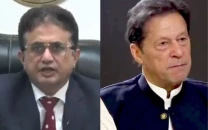Policy on Afghanistan: Pakistan should not follow US diktats
Experts and analysts suggest express views at seminar organised by PILDAT.

Policy on Afghanistan: Pakistan should not follow US diktats
This was stated by experts, analysts and subject-specialists at a seminar on US security, policy in Afghanistan and its implication for Pakistan, organised by PILDAT. The seminar aimed at covering two issues: how the US Congress influences security/defence policies and, to understand what implications does the new NATO/Lisbon agreement and recent US strategy review in Afghanistan have for the civil-military relations in Pakistan.
Ziad Haider former Foreign Policy Adviser to US Senator Christopher J. Dodd, Vice Chair of the Senate Foreign Relations Committee, Dr Hasan Askari-Rizvi defence and policy analyst Dr Riffat Hussain, Chairman Department of Defence and Strategic Studies, Quaid-i-Azam University (QAU) spoke on the occasion.
Mr Haider briefed the gathering on how US Congress shapes Pakistan specific policies, the working of the US Congress especially in the contest of Kerry-Lugar-Berman law highlighting the inherent stresses in the US legislative and executive branches.
While foreign policy remains the domain of the executive in the US, there are instances where Congress has guided policy such as through the Kerry-Lugar-Berman Act.
He said to think that the US speaks with one voice on Pakistan would not be true as different interests, varying levels of understanding a host of players are at play.
This provides an opportunity to Pakistan to better influence and shape policies on the Capitol Hill and at the White House. He pointed out that like legislatures the world around, Congress too has sliding public approval rating of about 13 per cent but its power of the purse makes it a formidable institution.
He said that the American public is weary of the longest wars of the US, Afghanistan but Obama may find the strangest of allies in the Republicans for support of the war.
Presenting an overview of the “Lisbon Summit Declaration and US Strategy Review and Implications for Civil-Military Relations in Pakistan,” Dr Hasan Askari Rizvi said US is in a difficult transition regarding the policy of Afghanistan and has had goal adjustments in Afghanistan and the objective is no longer total military victory. It is pursuing what can be termed as the policy of gradual withdrawal but has no clear framework for talks and reconciliation with Taliban either. It has not had any significant success in 2010 despite the surge in troops.
He said while Pakistan and the US may have goal-sharing at some level to fight extremism, it is the strategizing where the two sides differ. He said while Pakistan military has continued to gain political power and the civilian government has totally conceded foreign policy to the military, the military will continue to require civilian political support in days to come for counter-insurgency operations.
Speaking on the occasion Dr Riffat Hussain said that Pakistan needs to critically examine the latest US strategic review of Afghanistan and pointed out areas where the US vowed to focus, including more drone attacks inside Pakistan and a greater pressure on Pakistan to do more. He was of the opinion that the army chief has continued to take the civilian administration on board on key issues.
Aasiya Riaz, Join Director PILDAT, emphasized the need for the parliament and parliamentary parties to take initiative and proactive approach in critically analyzing Pakistan’s own stakes in the war and lead a narrative with institutional input of the military.
She said that strategic scapegoating of Pakistan by the US, in a war in which it has not achieved success in 10 years, seems to be the only dominant narrative internationally to the ire of the Pakistani citizens which needs to be factually countered by Pakistan.
The civil and military components of the state need to develop coherent and interest-based policies of not just during the time of US and NATO military presence in Afghanistan but beyond it as well.
Published in The Express Tribune, December 31st, 2010.



















COMMENTS
Comments are moderated and generally will be posted if they are on-topic and not abusive.
For more information, please see our Comments FAQ